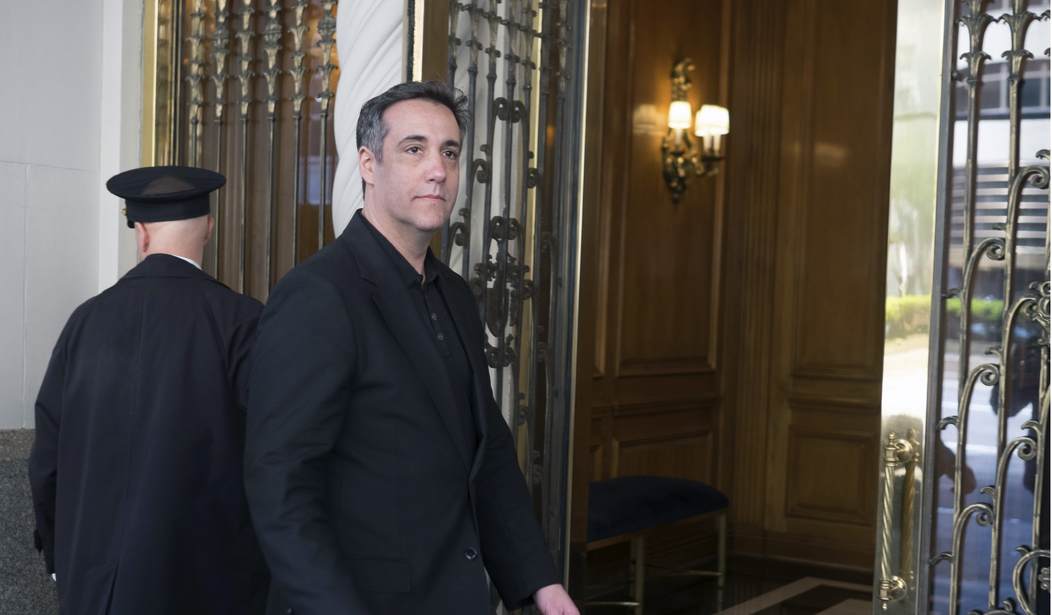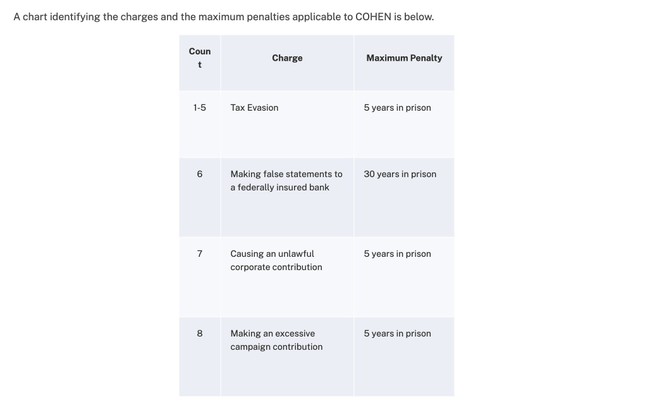Cohen Made Huge Admission in NYC Trump Case
Now the Tumblers Begin to Fall in Place

Well, well, well. What in the world does the prosecution of Donald Trump in Manhattan for bookkeeping charges have to do with the DOJ, Special Counsel Robert Mueller, and Russia, Russia, Russia? Seems interesting, no? We're just now beginning to understand a few more things about this Jenga-like prosecution of Donald Trump.
Other than the feds, in the form of the Southern District of New York federal prosecutors and the Federal Elections Commission declining to prosecute Trump for his payments to his attorney, we learned Tuesday that Robert Mueller's Special Counsel's Office wanted a piece of Michael Cohen before he reported to prison in 2018. Indeed, when all the questions are answered, we might discover that it was Mueller's pitbull, Andrew Weissmann, the FBI, and the DOJ who were responsible for his bizarre plea deal that sparked the idea for this wrong-headed case.
You'll find Weissmann all over MSNBC opining on the Manhattan case and telling the audience there that Trump is guilty... of something in this accounting brouhaha.
Here's what happened in court Tuesday during Cohen's testimony when the prosecutor asked him about it.
Cohen is testifying that he met with special counsel Robert Mueller's office several times before reporting to prison. Cohen first met with the special counsel's office in 2018 before pleading guilty, and he says he was not truthful "because I was still holding onto the loyalty to President Trump."
After pleading guilty, Cohen said he testified truthfully in subsequent meetings with Mueller's team.
You will recall that Cohen received less time from federal prosecutors for cheating on his income taxes and lying to a bank and then, despite not having anything to do with his fraud case, agreeing to plead guilty to two counts of campaign election violations. As Andy McCarthy noted recently, Cohen pleaded guilty to the campaign violations without those violations ever being litigated. McCarthy noted that these charges were never tested in court.
He marveled at why someone would plead guilty to these charges when both the feds and the Federal Elections Commission (FEC) declined to bring them because these weren't campaign expenditures and were not illegal. In 2018, McCarthy made the point that Cohen pleaded guilty to charges that weren't crimes. Why did Cohen do that?
Cohen could have been imprisoned for a long time for all the charges against him. This graph from a DOJ document shows how much time he could have spent behind bars.

In December 2018, the feds, who happily put all manner of Trump supporters in prison for long stretches, gave Cohen a three-year term. He noted on the stand Tuesday that he's still on probation.
In his testimony, the prosecution was allowed to note that Cohen went to prison for his crimes, including campaign finance violations that weren't violations of the law. This obviously will telegraph to the jury that these 34 charges in New York must be illegal campaign expenditures. That's the story the prosecution has been allowed to tell the jury even though they've charged only the bookkeeping charges.
We don't know to what extent the disgraced Mueller team had a hand, if any, in the plea bargain deal for fake campaign crimes, but Justice did. Cohen is mentioned in the Mueller Report 75 times.
On page 61 of the Mueller report, it discusses things about Trump that have been redacted because to reveal them would "cause harm to an ongoing matter." It's not clear what that ongoing matter is.
Tuesday, we found out that, without a doubt, there was a conspiracy that was planned to “Get Trump” by any means necessary — even on flimsy legal payments to stop stories from making it into the news cycle. This is what constitutional lawyer Mike Davis believes happened — a criminal conspiracy by all levels of prosecutors. If Trump makes it back into office, he told me on this week's podcast, he will insist on an investigation and prosecution of the conspiracists. The Article III Project founder has been studying this issue for 22 months.
I'm reading James Rosen's book about former Attorney General John Mitchell for an upcoming Adult in the Room podcast. Here's a quote I found in Rosen's “The Strong Man and the Secrets of Watergate” that was right on point about using lawfare to aid the "deep state's" ability to prosecute anyone of their choosing. Peter Fleming defended Mitchell in the Robert Vesco trial and won him an acquittal — in the middle of Watergate, no less.
"One of these days," Fleming told Judge Gagliardi, "we are going to find that we reach a due process point, where, by the sheer proliferation of charges, a government can force a man either to admit guilt, which he does not feel or to bankrupt himself... The economics of this thing are overwhelming. "
Call it what you will, but none call it justice.
And the tumblers are beginning to fall. Was this the playbook all along?





















